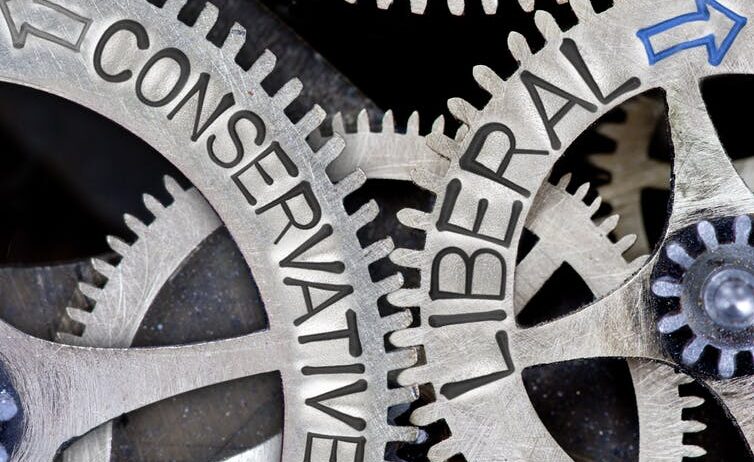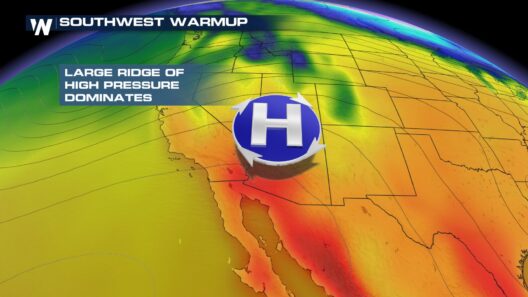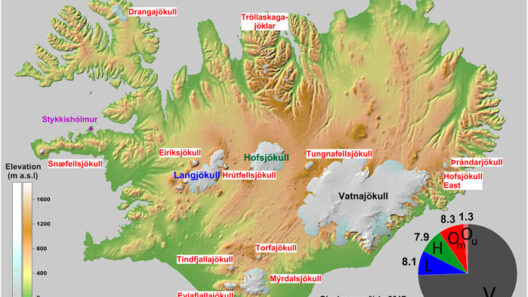Across the landscape of modern political discourse, few subjects have created as much divisiveness as climate change. To understand why conservatives—particularly in the United States—often express skepticism regarding this pressing issue, it is critical to traverse the labyrinthine corridors of ideology, economics, cultural identity, and psychological predispositions.
At the outset, the conservative worldview can be likened to a sturdy dam. This structure is built upon principles of tradition, individualism, and a profound mistrust of expansive governmental intervention. In this metaphor, climate change—a phenomenon necessitating cooperative action and regulatory oversight—acts as the relentless flow of a river, challenging the integrity of the dam. Conservatives often perceive climate change initiatives as a threat to their values, compelling them to fortify their position against what they see as an encroaching tide of liberal policy.
Moreover, the economic framework within which many conservatives operate creates a further barrier to accepting climate change. The notion of climate change often comes embedded within regulations that can be perceived as economically burdensome. Emblematic of this is the idea that environmental regulations could reduce profits, hinder job creation, or stymie innovation. In an era characterized by a tumultuous global economy, the mantra of “jobs versus the environment” resonates powerfully. The calculus here is straightforward: immediate economic stability can eclipse far-off environmental concerns, especially when framed in terms of personal livelihood and community well-being.
Adding another layer of complexity, conservative skepticism is often compounded by the interplay of misinformation and entrenched media narratives. In a digital age inundated with information, individuals gravitate towards media that affirms their beliefs. Conservative media outlets frequently propagate doubt regarding the scientific consensus on climate change, framing it as a contested issue rather than a settled scientific truth. This phenomenon exemplifies a psychological principle known as “confirmation bias,” where individuals favor information that aligns with their pre-existing views while dismissing contradicting evidence.
Furthermore, the intersection of identity politics and climate change skepticism cannot be overlooked. For many conservatives, their political beliefs are deeply intertwined with their sense of identity. The acceptance of climate change often necessitates alignment with liberal ideologies and discourses, which may alienate conservatives from their social circles and cultural communities. Thus, the stakes become personal; it transforms from a scientific debate into an existential struggle over identity. To many, conceding ground on climate change equates to the forfeiture of a broader ideological battleground.
Psychologically, the apprehension surrounding climate change can also be linked to feelings of helplessness and despair. Confronted with the enormity of the challenge, it is instinctual for individuals to reject or minimize what feels too overwhelming to confront. Skepticism, then, serves as a coping mechanism, shielding individuals from the paralyzing despair that can accompany acknowledgment of climate change. This psychological response, while understandable, inevitably leads to a deterioration of collective action, as denial fosters inertia and complacency.
Among these myriad factors, the appeal to values holds significant sway. Many conservatives prioritize values such as personal responsibility, self-reliance, and skepticism of government as a vehicle for change. Such values foster a narrative that emphasizes innovation and technological solutions as opposed to regulatory frameworks. This belief in human ingenuity positions many conservatives to favor market-driven solutions rather than government-led initiatives. Consequently, this ideological orientation can lead to an outright rejection of established scientific consensus regarding the human contributions to climate change.
Nevertheless, it is important to identify potential entry points for dialogue that transcend the barriers erected by ideology. By framing climate change in a manner that resonates with conservative values—such as economic resilience, national security, or stewardship of the land—opportunities emerge for nuanced discourse. Localized solutions, emphasizing innovation and community engagement, can help bridge the chasm between scientific understanding and public skepticism. The narrative can shift from one of alarmism to one of opportunity, paving the way for collaboration across the political spectrum.
Ultimately, the question of why conservatives often disbelieve in climate change is multifaceted and etched with complexity. It encompasses an intricate interplay of ideology, economics, identity, misinformation, and psychological responses. To foster a productive dialogue moving forward, it is imperative to approach these discussions with empathy and understanding. Much like a river finds its path around resistance, proponents of climate action must navigate the challenging terrain of skepticism to carve out a pathway to consensus. Only through patient engagement, grounded in shared values and goals, can the ideological dam be breached, allowing the transformative powers of cooperation to flow freely.
As the urgency of the climate crisis mounts, acknowledging the conservative perspective is not an endorsement of skepticism but rather a necessary step toward sustainable solutions. In uniting individual aspirations with collective responsibilities, it becomes possible to harness the strengths inherent in diverse viewpoints. Such collaborative efforts not only stand to safeguard the future of the planet but can ultimately reveal the rich tapestry of human determination in the face of adversity.







